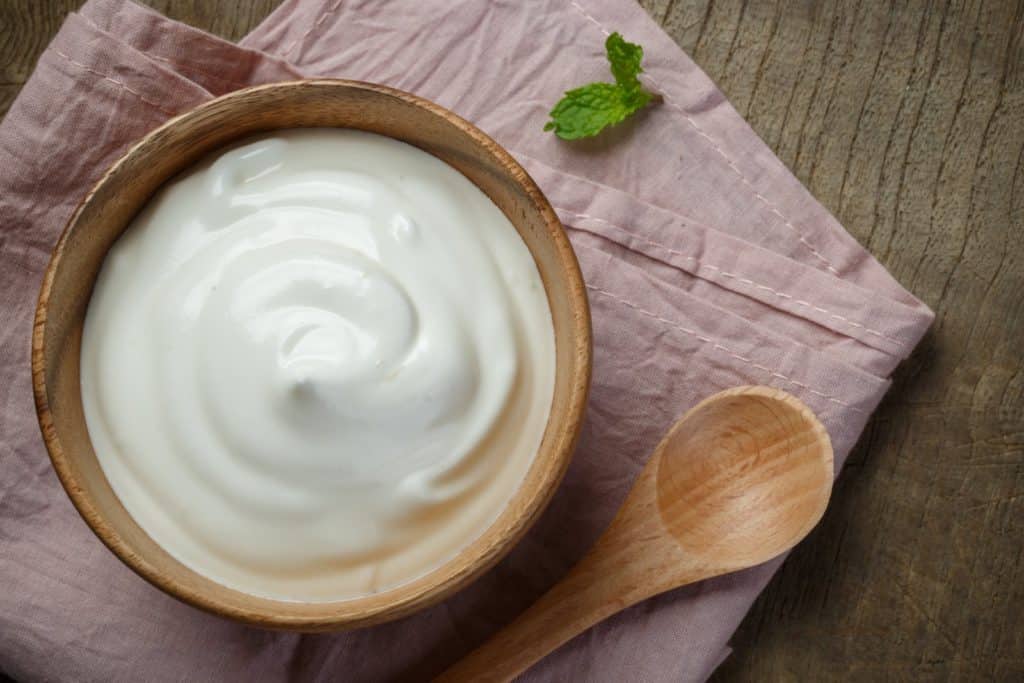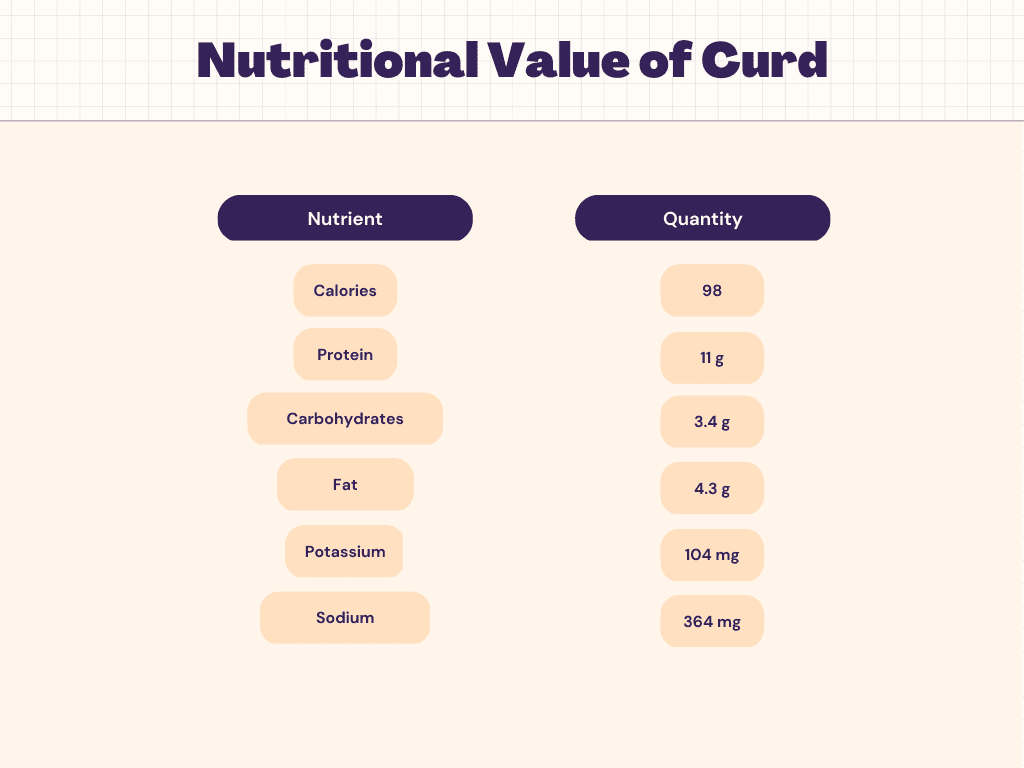Curd is a dairy product. It is a type of globally recognized fermented food. By introducing bacteria to the milk, the fermentation process occurs. Curds’ distinctive nutritional content has many advantages. Curd not only improves the flavor of many dishes but also digestion and gives bones and teeth strength.
Frequent intake of curds also lowers blood pressure and cholesterol levels. It improves skin health, lowers dandruff, and has additional advantages in addition to boosting the body’s immunity.
Nutritional Value of Curd
Nutritional Facts of Curd
As a strong source of vitamins, a cup of fat-free curd includes 8% vitamin B12 and 2% vitamin A, the same amount of vitamins found in milk. A cup of fat-free curd has about 8% calcium, 15% sodium, 2% magnesium, and 2% potassium when compared to other nutrients.
Health Benefits Of Curd
- Helps with digestion – It can keep the stomach’s acid levels in check. The pH levels may be controlled by curds, making them the ideal treatment for indigestion.
- Helps with weight loss – Curd should be a part of the diet of anyone wanting to lose weight. Curds aid in the battle against obesity thanks to the abundant calcium availability. Cortisol production is limited by calcium, preventing the body from gaining weight. Check our Weight Loss Plans.
- Increases bone strength – A fantastic source of calcium and phosphorus is curd. Both of them contribute to bone strength.
- Increases immunity – One of the best probiotic foods is curds since it contains live bacteria that the body needs. Curd gives the metabolism vigor and strength, which improves immunity.
- Helps with anxiety and stress – Curd reportedly helps the brain unwind and maintain emotional equilibrium. It lessens tension and aids in overcoming anxiety. It is an effective treatment for brain health because of all these results.
Vitamins & Minerals in Curd
Curd is rich in Vitamins B6, Vitamin B12, Vitamin B2, Vitamin A, Vitamin B3, Phosphorus, Calcium, Sodium, Zinc 0.9 mg, Potassium and Magnesium
The Bottom Line
The proper microorganisms in milk are combined to create curd or yogurt. The milk becomes thicker and has a sour flavor thanks to the bacteria. This method makes it possible to preserve the milk’s nutrients for longer. Curds are frequently used in many recipes and for direct consumption. Also, some take it for various advantages including cosmetic procedures. Curd is a natural treatment for hypertension and other related problems because it lowers stress levels as well. Daily consumption of the proper amount of curds aids in weight loss and fitness. Curd is a dependable dietary option for people who want to lead healthy lives because of all these qualities.
FAQs
How much Curd can I eat in a day?
Consume three portions of plain, fat-free, and unsweetened curd daily. You can have curd for breakfast, a snack, lunch, or dinner at any time of the day.
Should I eat Curd before or after exercise?
Yogurt is a fantastic post-workout snack, especially when mixed with other meals that are high in carbohydrates. Make careful you get natural, plain yogurt. Live bacterial cultures and milk or cream should be the only ingredients.
What are the benefits of Curd?
- Optimal Digestion
- increases immunity
- for better teeth and bones
- helps with weight loss
- For Beautiful and Healthy Skin
- prevents early aging of the skin
- eliminates dark spots
- gets rid of dandruff










